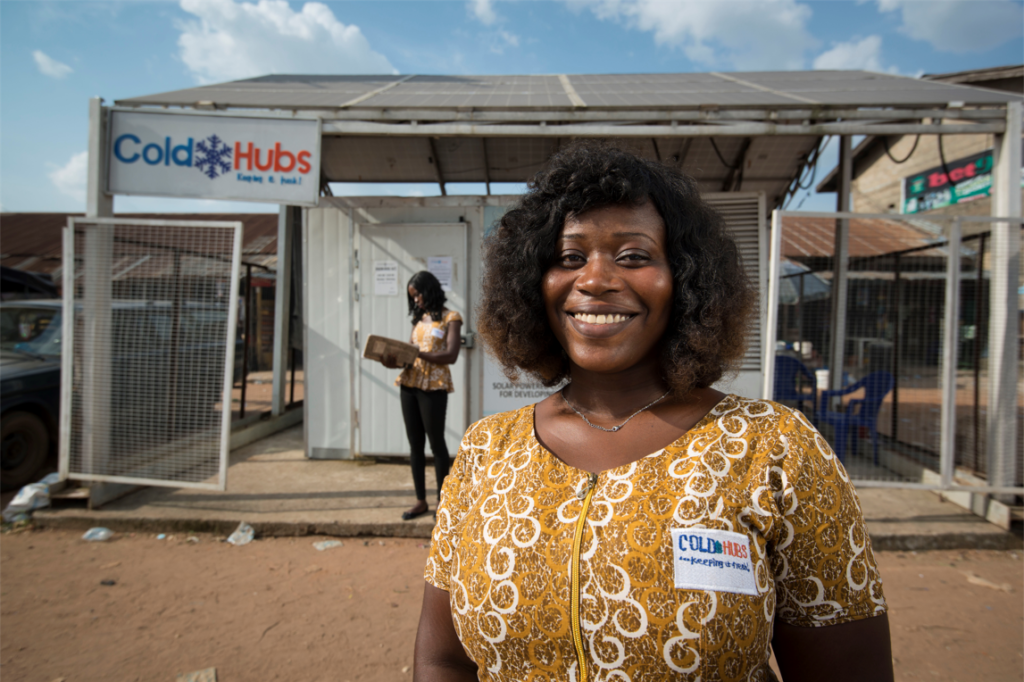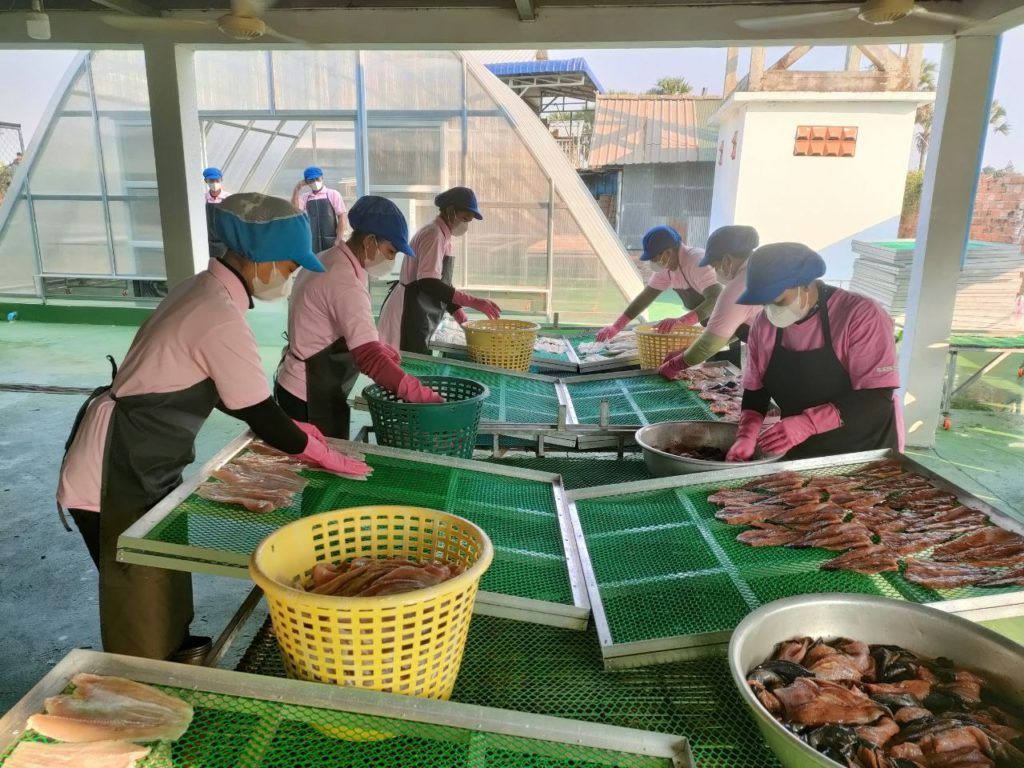In recognition of World Food Safety Day on June 7, the American Soybean Association’s World Initiative for Soy in Human Health shares three examples of its exciting work with strategic partners in Asia and sub-Saharan Africa: (1) management training for Nigerian cold storage hub operators, (2) solar domes for drying fish in Cambodia and (3) online courses for feed and food companies. These innovations are all part of WISHH’s impactful food safety work.
Promise is Hot for Nigerian ColdHubs

The Global Cold Chain Alliance introduced WISHH to ColdHubs CEO Nnaemeka. C. Ikegwounu, a pioneer in walk-in, solar-powered cold stations for 24/7 storage and preservation of foods at markets where farmers rent space through a pay-as-you-go subscription model. The units are often used for fruits and vegetables in Nigeria. Ikegwounu and WISHH see promise for greater use of ColdHubs in storing meat and fish.
In sub-Saharan Africa, post-harvest food losses are estimated to be worth US $4 billion per year—or enough to feed at least 48 million people, according to the United Nations Environment Programme. Food loss and waste are recognized as a serious threat to food security, the economy, and the environment.
This month, WISHH is sending a business management expert to Nigeria for customized training in business management methods and techniques that ensure the cooling room and equipment run optimally and avoid breakdowns. WISHH is using USDA Market Access Program and Agricultural Trade Promotion funding for this training to assist ColdHubs, its operators, and end users with more cost-effective, consistent, and reliable cooler performance.
Under the Dome, Over-the-Top Results!

WISHH’s USDA-Food for Progress Commercialization of Aquaculture for Sustainable Trade-Cambodia Project is tackling multiple challenges in the country’s aquaculture industry with the introduction of solar domes for drying fish. Cambodia’s wet season spans May to October and is a major challenge to fish distributors and the farmers who depend upon them to market their fish. Typically, fish are dried outside on tables where they are exposed to the sun—and food safety hazards.
CAST partner World Vision Cambodia worked with Yorn Samnang, owner of fish distribution enterprise Samnang Sothea, to introduce a solar dome that was custom designed by Harvest The Sun to meet the food safety standards CAST champions. HTS and CAST collaborated and tested prior to introducing the solar dome at Samnang’s fish distribution business in Feb. 2022. He also received a matching grant through CAST that covered approximately 40% of the cost of the solar dome investment.
Since its installation, Samnang reports his productivity increased 300%—tripled!—compared to traditional drying without the solar dome. Importantly, the shorter drying times help prevent fish from spoiling, and he doesn’t have to worry about rain. He can now dry fish at night, too. Samnang’s business is now drying up to 90-120 kg (198-265 lb.) of fish per day, which is about 27-36 metric tons of dried fish per year. HTS calculates Samnang will recover his investment in 12-18 months. Samnang is excited to increase his supplies to help fill the growing demand for safe fish in Cambodia.
The solar dryer domes also contribute to climate change resilience. They reduce food spoilage and waste linked to greenhouse gases while using clean renewable energy to increase food production. CAST is now working with two more fish suppliers who will purchase solar domes with CAST matching grant funding. HTS is optimistic that, in addition to aquaculture, the new solar dome technology will prove useful to others in agriculture.
Virtual Training Lessons for Food and Feed Entrepreneurs
WISHH is supporting strategic partners Prosoya Kenya and Yedent Agro in Ghana. Both companies manufacture soy-based foods and feeds, and their 14 employees will benefit from online food safety courses developed and offered by North Carolina State University. With USDA Foreign Market Development funding, WISHH is making it possible for these strategic partners to access four of NCSU’s self-guided lessons. Topics cover good manufacturing processes for warehousing and hazard analysis and other training.
Through these three initiatives and others, ASA/WISHH leads support for food safety and more so protein-rich soy offers solutions for healthy foods and feeds in Asia, Latin America and sub-Saharan Africa.
